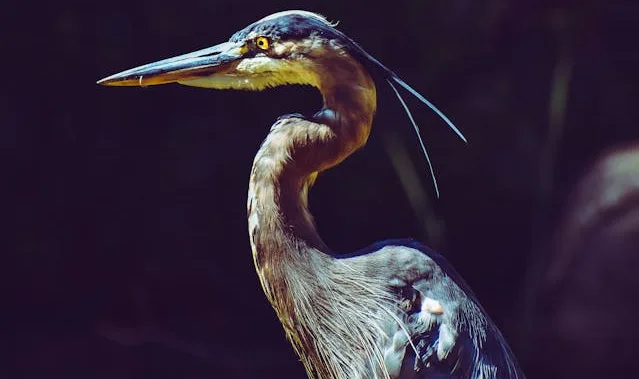A heron found gasping for air with a plastic cup lodged in its throat has undergone life-saving surgery and made a triumphant return to the wild
In a harrowing tale of survival, a heron found choking on a plastic cup in Brazil has been successfully treated and released back into its natural environment following an urgent veterinary operation. The incident has sparked a renewed focus on the dangers of plastic pollution, as this heron’s terrifying struggle became a stark reminder of the human impact on wildlife.
The heron was first spotted by concerned locals near a waterway, where it was seen struggling to breathe, seemingly trapped by the plastic cup wedged deep in its throat. The distressed bird was unable to move properly, and it was clear that immediate action was needed to save its life.
A team of skilled wildlife veterinarians was quickly mobilised to address the situation. The surgery to remove the plastic cup was complicated but ultimately successful. The heron, which had been gasping for air, was anaesthetised and carefully treated. Once the object was removed, the team closely monitored the bird for any signs of distress. After a brief recovery period, it was clear that the heron was strong enough to return to the wild.
Embed from Getty ImagesWith the cup no longer obstructing its throat, the heron was released back into its habitat, where it was seen flying away, free of its earlier torment. The successful surgery marked a turning point in the bird’s journey and was hailed as a small victory in the ongoing battle against plastic pollution, which continues to affect wildlife worldwide.
The Brazilian veterinarians who carried out the surgery highlighted the seriousness of the situation. “This heron’s case is not isolated,” said one of the doctors involved in the procedure. “Many animals fall victim to plastic waste. While this bird is lucky, others aren’t so fortunate.” Their sentiments echoed the broader issue of plastic contamination in ecosystems, particularly affecting waterfowl and marine life.
This case has reignited conversations about the growing environmental threat posed by plastic pollution in Brazil and beyond. Environmental groups have been calling for urgent action to reduce the use of single-use plastics and improve waste management systems. The heron’s rescue was not just a testament to the dedication of veterinarians but also a plea for greater awareness about the damage humans are inflicting on wildlife habitats.
Brazil, with its rich biodiversity and natural beauty, has become a focal point for conservationists and environmentalists. Yet, despite the country’s efforts to protect its environment, the presence of plastic waste continues to plague its ecosystems. The Brazilian government, along with NGOs, has implemented measures to combat plastic pollution, but the path to meaningful change remains a long one.
The heron’s dramatic story adds to the growing number of cases where animals are found choking on or entangled in plastic. From sea turtles to birds, countless creatures face the deadly consequences of our disposable culture. Conservationists are urging the public to take responsibility for reducing plastic waste and to support initiatives aimed at cleaning up the oceans and rivers.
The heron’s recovery and release were not only a win for the bird but also a win for environmental activists pushing for stronger action. It serves as a powerful reminder of how intertwined human actions are with the fate of the planet’s creatures. Each time an animal is saved from the ravages of plastic, it becomes a victory in the larger fight against environmental destruction.
As this heron flies once again, its survival story will continue to echo in the conversations around the world. Its struggle may be over, but the fight to protect wildlife from the scourge of plastic pollution is just beginning.
